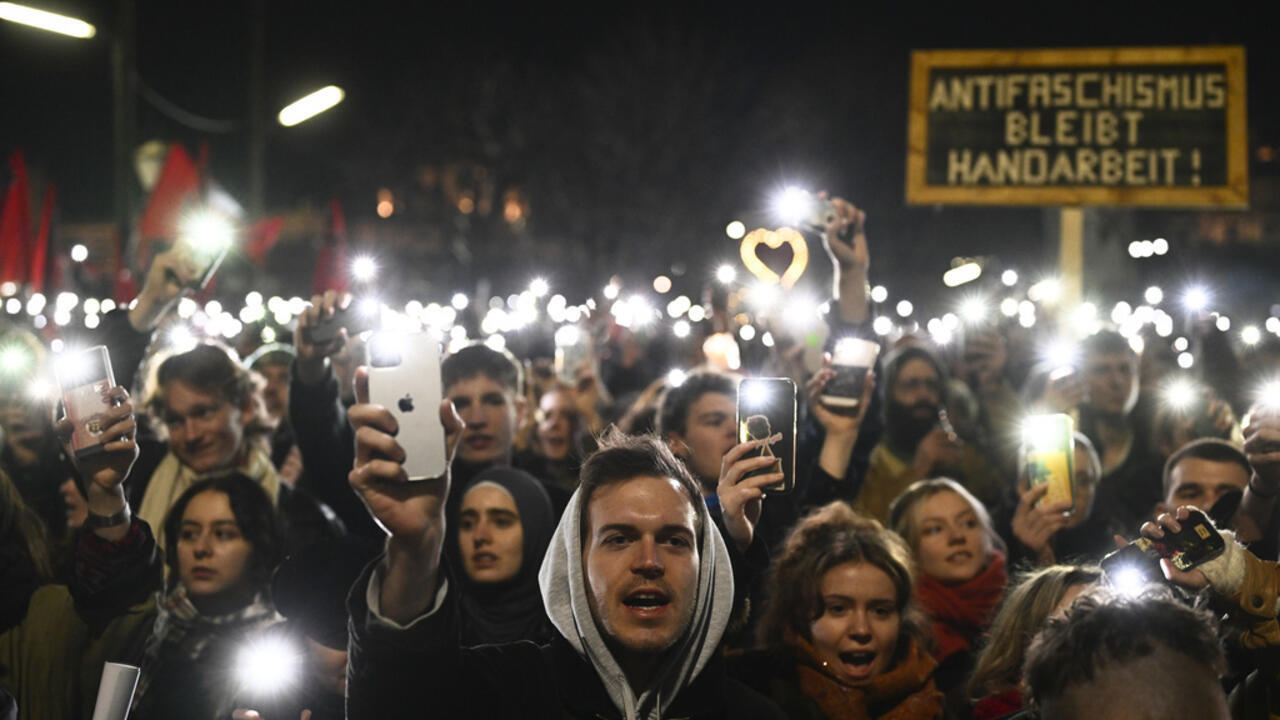Up to 50,000 people demonstrated across Austria on Thursday against the far-right Freedom Party (FPOe) as it begins coalition talks to form a new government.
The FPOe won parliamentary elections in September for the first time ever, with almost 29 percent of the vote. While other parties initially refused to form a cabinet with the FPOe, the conservative People’s Party (OeVP) reversed its position this week and agreed to negotiations. The talks begin Friday, with the FPOe holding a strong bargaining position.
In Vienna, thousands gathered late Thursday to oppose the potential coalition. Protesters held signs reading “Fight fascism” and “Nazis out”.
Authorities estimated the crowd at 25,000, while organisers said it was closer to 50,000. Some demonstrators formed a human chain around the chancellery and shone their mobile phone lights at the building.
“I find it very dangerous to see that right-wing extremism has reached the centre of our society,” retiree Veronika told RFI, adding she worried about the normalisation of the far right.
“Nobody is ashamed anymore, people get used to it so quickly. I’m afraid for our democracy, I don’t want things to turn out like they did in Hungary.”.
The far right has been a member of Austria’s government several times but has never led the country’s nine million inhabitants.
Student Ines is horrified by such a prospect. “I believe many individual freedoms are under threat. It’s the case for people from the LGBTQ+ community, for anyone from an immigrant background, for women, but also for all disadvantaged social groups,” she said.
Others underlined the radicality of FPOe leader Herbert Kickl, who has tapped into voter anxieties over migration, the war in Ukraine and the Covid pandemic.
“Kickl spoke of keeping refugees in centres in a ‘concentrated’ way – it brings back one of the most terrible chapters in our history,” said Felix, another demonstrator. “Someone who is prepared to polarise and provoke using words like that is prepared to do a lot of things.”
The rallies, which also took place in Innsbruck, Salzburg and Graz, were called by more than 30 organisations including anti-racism groups and Greenpeace.
The far right has had a strong presence in Austrian politics since the 1980s. In 2000, the FPOe, under Joerg Haider, joined a coalition government – a first in the European Union.
Today the party leads one regional government and participates in four others.


